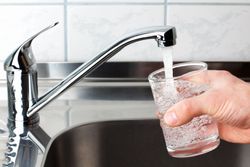
If you use a private well, it’s important to know how to test your water to be sure that it’s clean, healthy, and safe. You’ll need to know what’s in your water and in what amounts, and the best way to do this is through effective water testing. Each of these tests is designed to track different water quality indicators (WQIs), which consists of contaminants, organic components like germs, and chemical properties. By testing regularly and knowing what to look for, you’ll be able to respond to any changes in your water as soon as they arise. Below, find out more about different tests and how they can help.
Different Types of Water Testing
Basic Water Potability
Basic water potability tests determine the presence and levels of bacteria, pH, ions like sodium or iron, and hardness, which is the amount of calcium and magnesium in the water. As long as your water passes basic water potability, it’s safe to drink.
Coliform Bacteria
Tests for coliform bacteria track microorganisms like E. coli that can cause serious illness.
Nitrate
Nitrate is a chemical derived from nitrogen that’s often found in groundwater. While minimal levels are safe for adults, they can be dangerous to children under six months because they disrupt the distribution of oxygen through the bloodstream.
Ions
Sodium, sulfates, iron, chloride, and manganese are chemical elements called ions. One of the most basic indicators of their presence is unpleasant or distinctive odors or flavors. High sulfur content, for example, can be detected if your water has a telltale egg-like smell.
Sulfate
Sulfate is the production of a reaction between sulphuric acid and another element. Water tests that aim to detect this substance can help protect you from stomach problems or irritation, and too much of it in your water can have an undesirable laxative effect.
Fluoride
Fluoride testing may seem surprising. After all, many water authorities intentionally add fluoride for the beneficial role it can play in dental and oral health. But as with anything, too much can be unhealthy, and high concentrations of fluoride can cause dental problems if undetected.
When & How to Test
Every well is different, but you should make sure to have yours tested for pH, coliform bacteria, and nitrates each spring. You should also get tests performed if you notice any unusual smells, tastes, or colors in your water, or if you’ve had any damage or repairs done on your water system.
These tests can be performed by state and local environmental and health departments. Try to get as much as possible tested for at once, since these tests can often be done together.
For expert advice and assistance with water testing, turn to Evergreen Well Drilling of Shelton, WA. This company offers the benefit of over 40 years of experience to residents of Shelton and the surrounding area for installation, construction, and maintenance of wells, pumps, and ditches. These experts are fully licensed, insured, and bonded, guaranteeing professional and reliable service. To find out what they can do for you, find them online or call today at (360) 426-3545.About the Business
Have a question? Ask the experts!
Send your question


